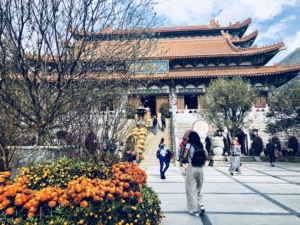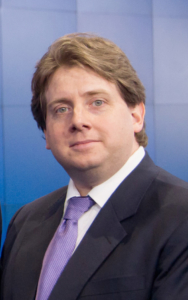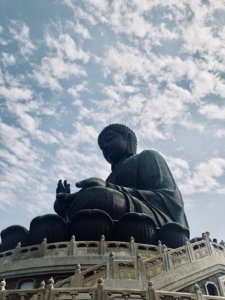NYU Stern’s flagship program, the Barr Family International Studies Program (ISP), gives undergraduate juniors the chance to study a company in a foreign country and experience it first-hand when they travel to that country over Spring Break along with 200 of their classmates. When enrolling in the course, students choose one of three cities in Asia, Europe, or South America. Some of the past and current cities include: Santiago, Lisbon, Ho Chi Minh, Barcelona, Lima, and Hong Kong (where I went!). ISP culminates with a competition in which student groups present their learnings and recommendations for their given company to classmates, professors, and deans.
Because the ISP program is such a major part of the curriculum here at NYU Stern, it is difficult to capture it in just one post (if you missed part one, visit The Best Memory of My Time at Stern). So, in part two of this series, I wanted to get an inside look at the planning and details that go into the ISP course. To do this, I spoke with Professor Joseph Foudy who is ISP’s faculty coordinator. He also teaches the program’s Asia course.
Why is this experience important for students to have?
Professor Foudy: Two parts of value: socialization with classmates and local businesses as well as learning about the global economy. By visiting corporate facilities, you can see the ethos of the company and the executives that make it work. This is why the business trip is a vital part of the program. Physically going to these countries helps students understand the consumer and regulatory environments and is especially helpful in understanding niche markets. Additionally, students don’t often have the experience of seeing the business on the ground (for example, an operating factory) and experience the customer behavior in different countries.
What do you think students should do to prepare for the experience?
Professor Foudy: There is no need for preparation in advance besides the coursework we focus on in class in the run-up to the trip. Students should remember their curriculum because it is meant to aid their future strategy projects and emphasize how countries vary through consumer behavior. My advice to students: just keep your eyes open while you are there.
What activities do you suggest students do while on the trip?
Professor Foudy: Go out every day and night to observe the streets. All of the cities in ISP are experiential cities so you don’t need to only see museums; you can learn by simply wandering.
What is something about the planning process that most students don’t know about?
Professor Foudy: Planning for the next year starts immediately after the trip. We see what went well from students, faculty, and staff. When picking new locations, we base it heavily off of safety, hotel, and flight availability for 200 plus students and staff, range of companies, and the history of the country and city. Because of this, locations studied in each region may change from year to year while the usual rotation is every three to four years.
What is your favorite part of the whole experience and why do you continue to teach it year after year?
Professor Foudy: The course is transformative. Students look at themselves differently after the trip and the project really encapsulates everything they have learned at Stern.
DON’T MISS: THE BEST MEMORY OF MY TIME AT STERN or WHAT I LOVE ABOUT STERN













